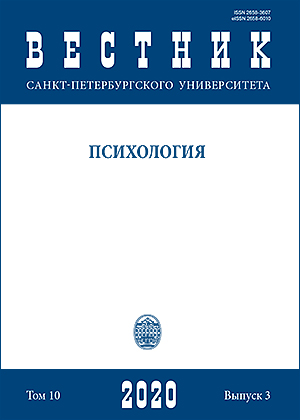The specifics of the doctor-patient relationship in the system of neonatological and pediatric care and the areas of psychological work
DOI:
https://doi.org/10.21638/spbu16.2020.306Abstract
The article is focused on doctor-patient relationships in neonatological and pediatric medicine we want to specify the practice. I feel the term “pediartic medicine” repeats itself, moreover medicine includes theoretical knowledge about treatment but we want to emphasize practice where the child is the patient since he is the one who receives medical care but all communication is conducted with his caregiver/legal representative and this constitutes a specific feature of these relationships. Neonatologists and pediatricians are the first professionals that the mother-child/legal representative see, and they are the ones with whom the caregiver discusses the child’s physical and mental health, as well as development. An important aspect of this relationship is compliance. The authors note that compliance is indirect due to the tripartite relationship, where the doctor’s recommendations in the interests of the child are carried out by his legal representative; at the same time, the success of the treatment and competent child care depend on the quality of this compliance. Significant aspects of compliance are identified by the authors: the doctor’s psychological literacy, the ability to establish trusting relationships with the caregivers relationships should be build BOTH with caregiver AND a child, this is important, and the ability to consider individual characteristics and emotional state of a caregiver while discussing a child’s health and providing the necessary prescriptions. This all influences the caregiver’s compliance which in turn leads to high quality childcare, treatment, and recovery, as well as a child’s physical and mental health. Special attention is given to the ability of a neonatologist/pediatrician to observe, during examination, behavioural manifestations that may indicate a risk of developing emotional difficulties and mental health disorders, and to refer the child and caregiver here was a misprint to a psychologist or psychotherapist for a consultation. This is an important factor for treating and preventing socio-emotional and mental health problems as early as possible. In the conclusion, the authors describe the main areas of psychological work with medical professionals in neonatological and pediatric care while also discussing the necessity of a systemic approach in psychological services at medical units.
Keywords:
neonatologist, pediatrician, early age, children, parents, doctor-patient relationships, compliance, mental health, psychological help
Downloads
References
References
Downloads
Published
How to Cite
Issue
Section
License
Articles of "Vestnik of Saint Petersburg University. Psychology" are open access distributed under the terms of the License Agreement with Saint Petersburg State University, which permits to the authors unrestricted distribution and self-archiving free of charge.




